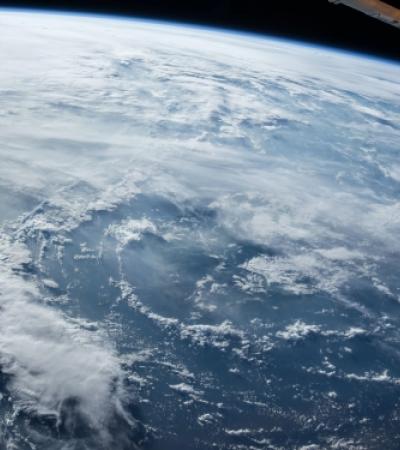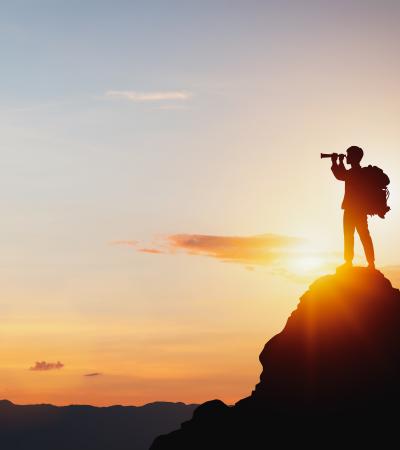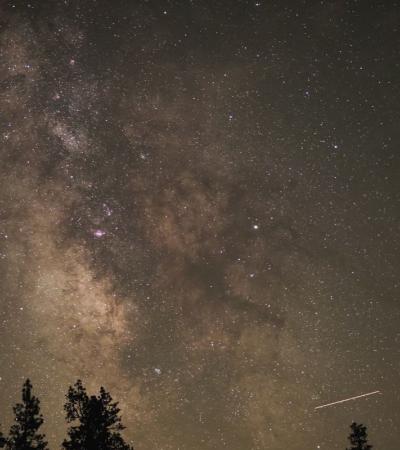Libraries nationwide joined in the festivities to mark yesterday's solar eclipse. Despite not experiencing 100 percent totality in some areas, libraries enthusiastically organized viewing parties and events to commemorate the spectacle. Along with the excitement, library staff fielded a flurry of last-minute requests for eclipse glasses, ensuring everyone could safely enjoy the event.
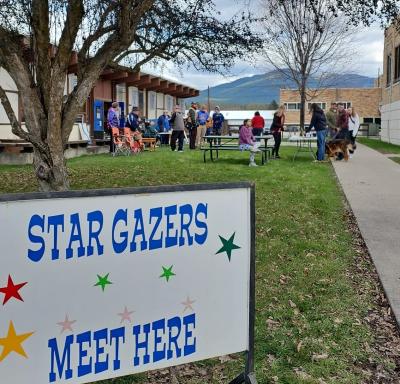
As the eclipse concluded, a collective sigh of relief swept through, followed by social media posts declaring, "We survived the 2024 solar eclipse!"
Members of the Programming Librarian Facebook group share their successes and stresses from the April 8 event.
Phones ringing off the hook
Many last-minute eclipse viewers heard through the grapevine that the local library is the place to get a free pair of eclipse glasses. Come Monday morning, however, many libraries had run out and spent hours answering calls or turning people away at the door.
"We ran out of extra glasses and have been fielding hundreds of calls since. We took a tally, and we answered almost 200 calls before the eclipse! That's a lot considering we usually get about 20 calls a day," wrote a staff member from Coatesville Area Public Library in Pennsylvania.
Library workers joked that the hunt for eclipse glasses felt like "The Hunger Games."
"One of our biggest programs ever"
Despite the chaos of eclipse glasses, libraries were hotspots for all types of popular eclipse activities.
"We've got a Total Eclipse Viewing Party that's open to the public, and I'm also doing a program in our school district this afternoon with grades 6-8 where we'll be doing crafts, giving away glasses, and doing a pocket solar system activity. Not bad for a town of 1,400!" wrote Bailey Anderson of Black Earth Public Library in Wisconsin. "Between all programs, we ended up hosting about 400 people. It was one of our biggest programs ever."
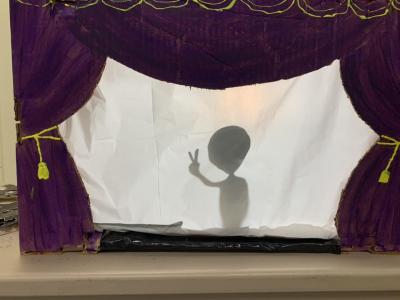
According to many library workers, the solar eclipse events were some of their libraries' most successful, bringing communities together and allowing for a collective experience. Aside from just viewing the eclipse, libraries hosted a range of programs, from moon bounces, crafts, live streams, STEAM activities and shadow puppet theaters.
"My favorite activity is the shadow puppet theatre I made!" wrote Jenna Kissel of Watauga County Library in North Carolina. "I made the theatre from a box that came in with some donations and a white, very thin table covering. I searched for silhouettes in Publisher that were fair use and stole my daughter’s reading light!"
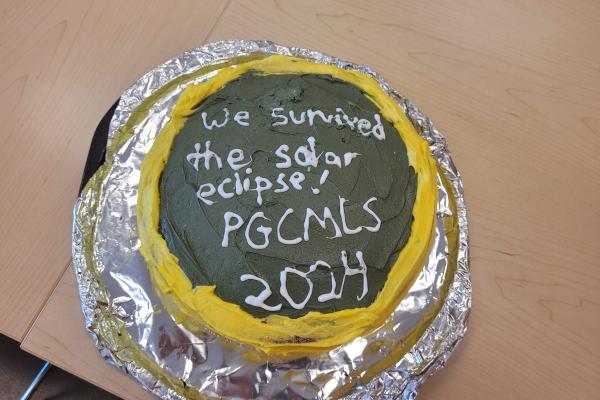
We survived!
The post-eclipse calm gave library workers time to reflect and share support with colleagues for a successful day. Some celebrated the end of the eclipse with cakes and snacks.
"We had a solar eclipse-themed snack cart for staff and a bookmark station with a Spotify playlist," wrote Andrea Keller of the Cardwell Library, Irving Independent School District in Texas.
What to do with extra eclipse glasses
If your library managed to have any leftover eclipse glasses, you can donate them, recycle them (make sure the lenses are popped out), or keep them in storage for future eclipses.
Eclipse Glasses USA is accepting donations through August 1, 2024, so they can be sent to Latin America for school-aged children to view the October eclipse. Astronomers Without Borders is also accepting donations.

